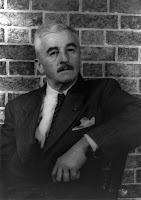I have
written about writing retreats here in the past. Last month, I was on vacation
and made that into sort of a writing retreat, but since I can’t do that again
for awhile, I started thinking about other things I could do instead. And then
it came to me: a one day writing retreat for my local writers group. I
suggested the idea to them and was asked to start planning something.
For
this first time out (maybe it could become an annual event), we are going to stay
in town to keep costs low. I picked a part of town where there are restaurants,
outdoor seating areas, a walking trail, public library, hotel and a university.
Plenty of places to use for a day-long or half-day writing retreat.
The
first thing I did was to make a list of things that might be important to a
group of writers. This list by no means is complete. There may be other things
that are important to you or to your group. You may use my list and add to it. Perhaps
brainstorm with some other writers.
- Goals – What do you want to get from the retreat? Write a chapter of your novel? Complete a book? Start a book? Write an article? Try out some new writing prompts.
- Location – Do you want to stay local or go out of town? If spending at least one night away from home, where might the group want to stay? Hotel, bed and breakfast, cabin by a lake?
- Length – Will it be for one day, a weekend, a week or longer? What about a particular day, week or month?
- Writing time – How long do you want to write? Maybe the entire retreat, half of it, a few hours a day? Are there other things you would like to do besides writing during the retreat?
- Work area – Will you be sharing your work area or will you be working alone? Indoors, outdoors, table, bench, library, café. Are there a number of cafes on the street or neighborhood where you plan to go? Try café-hopping while you write.
- Social activities – What other activities and sites are available? Walking trails, shopping, museums, theaters or spas might be nearby. Get some exercise, do something besides writing, relax, have fun.
- Meals – Will you eat together as a group or separately? Share the cooking, dine at restaurants, pack a picnic lunch, have some snacks. And don’t forget beverages, including wine.
- Writing kit – What do you need to bring with you to help you write and to provide inspiration? A tote bag filled with items such as notebooks and pens, laptop, books, magazines, photos/art, music, etc.
- Conversation – What will the group talk about? Bring a book on the craft of writing to discuss, an experience you want to share, suggestions on how to overcome writers block.
- Online or offline – Will you forgo email and social media? It might be ok to do some research for the book or article you are working on, but for most of the retreat, try to stay away from the internet.
- Types of clothing - What kinds of clothing do you want to wear/pack? If you wear a literary or writing t-shirt when writing, would that make you work harder? Perhaps it’s a shirt you got at a writing conference, ordered from NaNoWriMo or purchased from another source. You might get some compliments and comments on it when you are out and about!
I have
a kit which I will use during the planning and at the retreat. The Writer’s Retreat Kit: A Guide for
Creative Exploration & Personal Expression by Judy Reeves is a boxed set of cards and a book. This set covers the planning of retreats
and includes lists of writing prompts. It’s full of ideas that writers will
find useful, whether the retreat is far away or at home. http://judyreeveswriter.com/writers-retreat-kit/.
What
would you like to do on a writing retreat? Have you been on a retreat? If so, what did you do? Feel free to
share your ideas and experiences here.
Debbie A. Byrne has a
B.S. in Mass Communication with a minor in History. She is a member of the
Society of Children’s Book Writers and Illustrators (SCBWI) and is working on
her first children’s book.




















